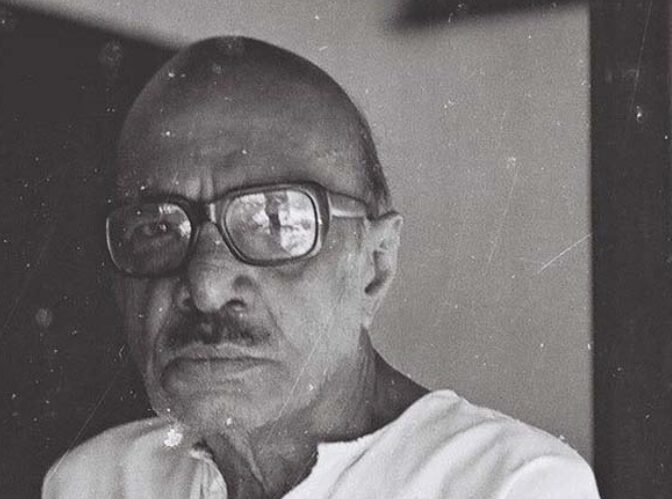Vaikom Muhammad Basheer (1908–1994) was a renowned Indian writer and humanist from Kerala, Kozhikode famous for his path-breaking and down-to-earth Malayalam literature. He was also an Indian independence activist. Basheer wrote novels and short stories celebrated for their humor, simplicity, and deep social commentary, often reflecting themes of love, hunger, poverty, and human resilience. His notable works include “Balyakalasakhi,” “Pathummayude Aadu,” and “Mathilukal,” and his writing continues to resonate for its authenticity and warmth. He received several honors, including the Padma Shri in 1982.
Kozhikode is central to Basheer’s literary world and personal life. Known as the “Beypore Sultan,” Basheer’s stories often draw from the multicultural, coastal atmosphere of Kozhikode and its neighborhoods. The city’s cultural diversity and progressive spirit shaped his characters, language, and themes of communal harmony and social justice. Kozhikode also honors his legacy as a UNESCO City of Literature, highlighting Basheer’s lasting impact on the city’s literary heritage and Malayalam literature as a whole.
Kozhikode’s Vibrant Life in His Works
Basheer was a master at capturing the nuances of everyday life, and Kozhikode provided an endless source of inspiration. His stories are teeming with:
Ordinary People and Their Extraordinary Tales: The streets of Kozhikode were his muse. He drew characters from the common folk shopkeepers, laborers, beggars, and dreamers imbuing them with humor, pathos, and a profound sense of humanity. His ability to find the extraordinary in the ordinary is a hallmark of his writing, directly influenced by his observations in the city.
Local Dialect and Colloquialisms: Basheer’s language was revolutionary. He eschewed overly formal literary Malayalam for the vibrant, colloquial dialect of Kozhikode, making his stories accessible and relatable to a wider audience. This linguistic choice not only reflects the local flavor but also underscores his commitment to portraying life as it was genuinely lived.
The Beypore Ethos: His residence in Beypore, a coastal town within Kozhikode, is central to many of his narratives. “Pathummayude Aadu” is perhaps the most famous example, where his own home, family members, and their goat become the protagonists. The book is a tender, humorous, and poignant portrayal of domestic life, deeply rooted in the Beypore setting. The very simplicity and charm of the narrative are a testament to the specific locale that inspired it.
Cultural and Social Landscape: Kozhikode’s rich multicultural heritage, with its blend of various communities and traditions, also found its way into Basheer’s narratives. His stories often subtly reflect the social dynamics, communal harmony, and occasional frictions that characterized life in the city, offering a glimpse into a bygone era.
Timeless Themes and the Kozhikode Lens
While Basheer’s stories are set in a specific time and place, the themes he explores are universal. Through the lens of Kozhikode, he delves into:
Love and Relationships: From the innocent childhood romance in “Balyakalasakhi” to the poignant longing in “Mathilukal”, Basheer explored the complexities of human relationships, often with Kozhikode as the backdrop for these emotional sagas.
Hunger and Poverty: Having experienced hardship himself, Basheer’s writings often shed light on the struggles of the poor and marginalized. Kozhikode’s diverse socio-economic landscape provided him with ample material to depict these realities with sensitivity and empathy.
Freedom and Humanism: Basheer was a freedom fighter, and his commitment to humanist values permeates his work. His time in Kozhikode, a city with its own history of anti-colonial resistance and social reform, further shaped his worldview and found expression in his narratives, even those seemingly simple or humorous.
In conclusion, the relevance of Kozhikode in Vaikom Muhammad Basheer’s books is profound and multifaceted. It was his home, his muse, his stage, and his audience. The city not only provided the physical settings and the raw material for his stories but also deeply influenced his literary style, his philosophical outlook, and his very identity as a writer.

